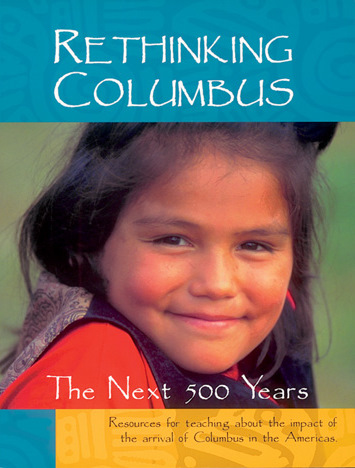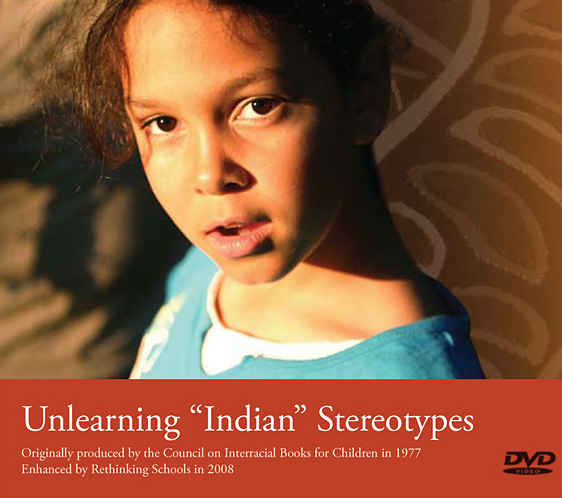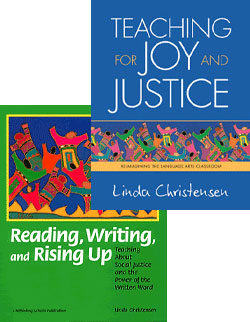Portland, Oregon language arts teacher, Michelle Kenney, has written a provocative article for Rethinking Schools about some of her curricular choices—and how what seem like great ideas one moment, turn out to embed troubling race and gender biases. I don’t want to give anything away, because there are interesting twists and surprises in her article. But it doesn’t spoil her story to mention that in one encounter included in the article, a parent insists that Kenney teach Lord of the Flies, a book that Kenney detests because of its pessimism about human nature.
It’s a novel I read as a high school sophomore. I found it engrossing, and spent long hours gripped by the conflicts of the boys on the island. But I remember being troubled by the book, and by its conclusion that invited the reader to breathe a sigh of relief as the British Navy arrived to restore order and civilization. Its message: How easy it would be to fall into barbarism, without …. well, without the guns and uniforms and commanding presence of empire.
It seems that Lord of the Flies lingers as a distasteful memory for a lot of us. In her “Outside In” column in the March/April 2013 issue of Orion magazine, on “The Politics of Play,” Jay Griffiths lays into Lord of the Flies, and argues that, not only is it an offensive book, utterly inappropriate for school, but is also flat wrong in its premises.
“Lord of the Flies opens with misadventure,” Griffiths writes, “as the children are stranded on the island. An odiously racist text, it describes the group of boys who become the cruel killers as a ‘tribe’ of ‘savages,’ hunting, dancing, chanting, and ‘garlanded,’ with their long hair tied back: ‘a pack of painted Indians.’”
It’s a testament to the pervasiveness of racist stereotypes in today’s society that this novel wasn’t yanked long ago from high school book rooms. It expresses contempt for indigenous cultures, and embraces a cultural hierarchy, with Western empire on top. Lord of the Flies’ portrayal of humanity’s innate savagery justifies the subordination and loss of “lesser” cultures. It’s an especially troubling message these days as global warming-induced rising oceans force indigenous island people—like those on Kiribati, the Carteret Islands, and Tuvalu—to flee their homes.
Griffiths concludes her column with what she calls “a real-life Lord of the Flies incident”—one that offers the exact opposite message from that of the book. Here’s the story Griffiths tells:
One day, in 1977, six boys set out from Tonga on a fishing trip. They left safe harbor, and fate befell them. Badly. Caught in a huge storm, the boys were shipwrecked on a deserted island. What do they do, this little tribe?
They made a pact never to quarrel, because they could see that arguing could lead to mutually assured destruction. They promised each other that wherever they went on the island, they would go in twos, in case they got lost or had an accident. They agreed to have a rotation of being on guard, night and day, to watch out for anything that might harm them or anything that might help. And they kept their promises—for a day that became a week, a month, a year. After 15 months, two boys, on watch as they had agreed, saw a speck of a boat on the horizon. The boys were found and rescued, all of them, grace intact and promises held.
These days, the last thing we need is a book like Lord of the Flies that offers a cynical portrait of our inner savage—a savage in need of a system of allegiance pledges and bosses and orders and tests and marching in line; all rooted in the fear of “consequences.”
Yes, we know that people can be violent and greedy. But through and through, we’re better off when the school curriculum is built on the presumption that human beings are capable of cooperation, kindness, intelligence, and solidarity. We ought to choose our literature with that in mind, and we ought to organize school life in a way that nurtures those human qualities.
Related Resources
 |
Rethinking Columbus. Over 80 essays, poems, historical vignettes, and lesson plans re-evaluate the legacy of Columbus. Packed with useful teaching ideas for kindergarten through college. |
 |
Unlearning Indian Stereotypes (DVD). Narrated by Native American children, the DVD teaches about racial stereotypes and provides an introduction to Native American history through the eyes of children. |
 |
In Teaching for Joy and Justice, Linda Christensen demonstrates how she draws on students’ lives to teach poetry, essays, narratives and critical literacy skills. Reading Writing, and Rising Up is a practical, inspirational book that offers essays, lesson plans, handouts, and a remarkable collection of student writing, all rooted in an unwavering focus on language arts teaching for justice. |

